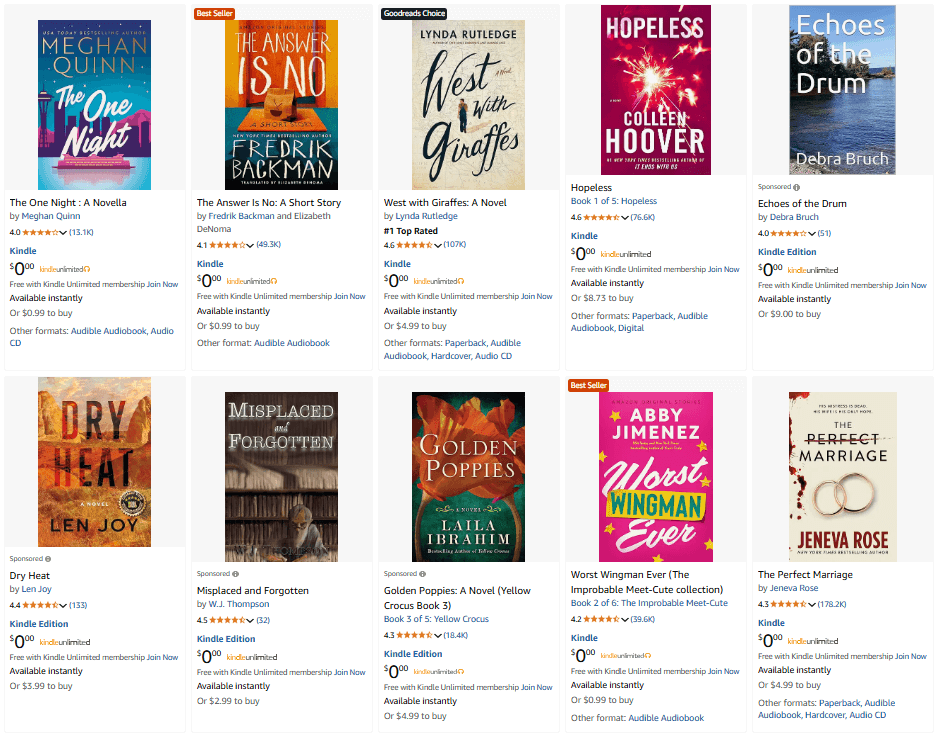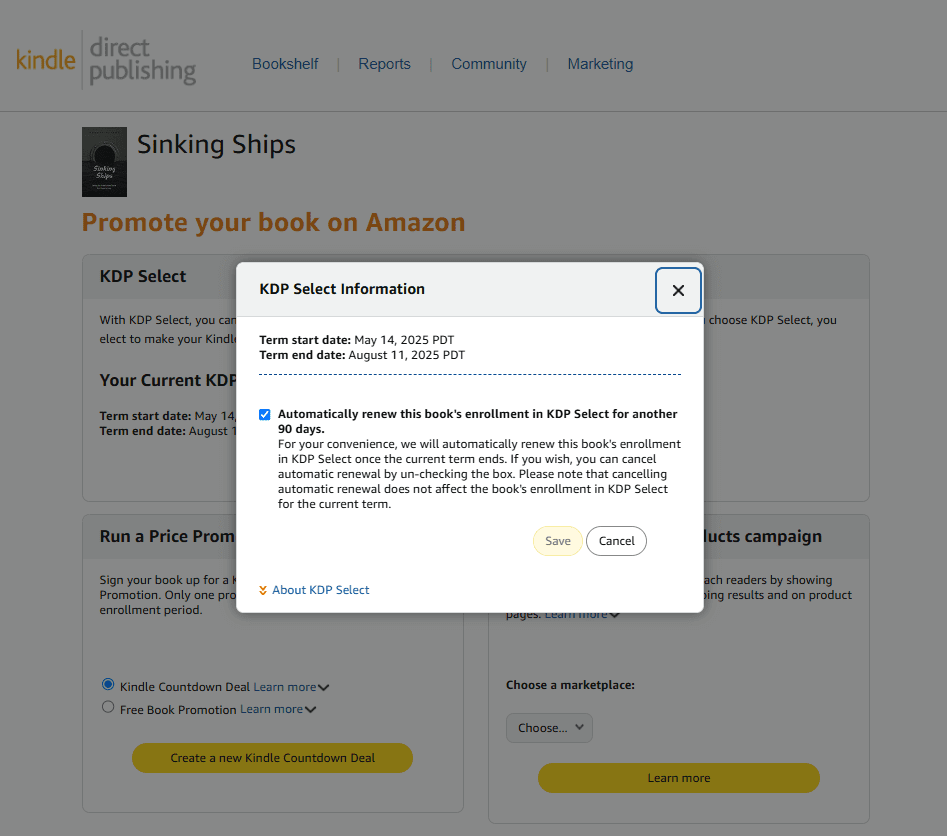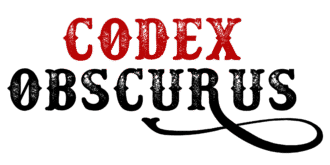
Every time you publish an ebook on Amazon, you’re faced with a key decision: should you enroll it in Kindle Unlimited?
For many indie authors, the idea of tapping into Amazon’s massive subscription-reading base sounds like a no-brainer. Kindle Unlimited gives readers unlimited access to a rotating library of ebooks, and it gives you the chance to earn money every time someone turns the page.
With millions of active subscribers and a growing appetite for digital reading, it’s easy to see the appeal, especially if you’re trying to gain momentum, boost your visibility, or build a loyal following quickly.
But this opportunity comes with trade-offs. Enrolling means agreeing to Amazon’s exclusivity terms, changing how your royalties are calculated, and potentially limiting your reach outside the platform.
You’re giving up wide distribution in exchange for deeper placement inside Amazon’s ecosystem. Depending on your genre, release schedule, and long-term goals, this can either accelerate your growth or box you in.
I’ve personally had books that thrived in Kindle Unlimited, where daily page reads far outperformed direct sales, and others that would’ve done better reaching audiences on Apple Books or Kobo.
What worked had less to do with the quality of the book and more to do with how well it matched reader behavior inside KU.
Before you click that enrollment box, let’s walk through exactly how Kindle Unlimited works, what you’re agreeing to, and whether it’s the smartest move for your books and your goals.
Understanding the trade-offs ahead of time can help you publish with purpose and set realistic expectations for your earnings and exposure.
What Is Kindle Unlimited?
Kindle Unlimited is a monthly subscription service that allows readers to borrow and read as many books as they want from a large catalog of eligible titles. As of 2024, the service has over 4 million subscribers globally.
Readers pay $11.99 per month and can access up to 20 books at a time across all genres, from romance and thrillers to self-help and science fiction.
For readers, it works a lot like Netflix for ebooks. They can binge through entire series without worrying about individual purchase prices.
That kind of convenience keeps them coming back, which is exactly why so many authors want their books in front of Kindle Unlimited readers.
But here’s the catch for authors: your book doesn’t automatically end up in Kindle Unlimited just because it’s on Amazon. You have to enroll it in KDP Select, Amazon’s exclusive program for ebooks. That’s the gateway to Kindle Unlimited.
Enrolling in KDP Select tells Amazon you’re willing to keep your ebook exclusive to their platform for 90 days in exchange for access to the subscription model and its benefits.
Readers who enjoy the first book can immediately move on to the next without hesitating at a price tag.
I’ve had authors ask me why their book isn’t showing up in Kindle Unlimited even though it’s available on Amazon. This is why.
It’s a separate choice you have to make when publishing or updating your title inside Kindle Direct Publishing. And once you’re in, your book becomes available to millions of paying subscribers looking for their next favorite read.
How Kindle Unlimited Works for Authors
When you enroll your ebook in KDP Select, it becomes available to Kindle Unlimited readers. That means subscribers can borrow and read your book without buying it outright.
But instead of earning a fixed royalty from a sale, you’re paid based on how many pages readers actually read.
Amazon uses a metric called KENP (short for Kindle Edition Normalized Pages) to measure those reads. Think of it as Amazon’s way of standardizing ebooks of all sizes and formats.
Your payout is determined by how many KENP pages your readers go through, not how long your book is in terms of manuscript pages.
Here’s where it gets interesting: the money doesn’t come from the price of your book. It comes from a shared pool known as the KDP Select Global Fund.
In May 2024 alone, that fund totaled $50.1 million. Each month, Amazon divides that fund among all participating authors based on total KENP pages read across the platform. For most months, the payout lands between $0.004 and $0.005 per page.
To put it in perspective, if a reader finishes a 300-page book, you might earn around $1.50 from that one borrow. At first glance, that may feel like a modest amount, especially if your book sells for $2.99 or more on the regular Kindle Store.
But when your book starts racking up thousands of full reads from active subscribers, that income grows quickly. I’ve seen one of my own books earn more from Kindle Unlimited in a single month than it did through paid downloads across an entire quarter.
This model favors certain author strategies. Binge-worthy series, fast-paced storytelling, and regular releases can lead to more reads, more pages turned, and more consistent royalties.
If your writing hooks readers and keeps them swiping through chapters, Kindle Unlimited can reward that effort in a very tangible way.
Terms and Conditions You Should Know
Before you click that KDP Select checkbox, read the fine print, seriously. It might look like a simple yes-or-no option during publishing, but what you’re agreeing to affects where your book can appear, how you can promote it, and what kind of audience you can reach outside Amazon.
Exclusivity
Once you enroll your ebook in KDP Select, you’re agreeing to keep it exclusive to Amazon for 90 days. That means no selling or giving away your ebook on Apple Books, Kobo, Google Play, or even on your personal blog or newsletter.
It’s Amazon’s way of making sure Kindle Unlimited offers content readers can’t get anywhere else. For authors with an established wide audience, that limitation can feel like a big trade-off.
But for authors trying to build a foothold in the Amazon market, that exclusivity might come with increased visibility.

Auto-renewal
Enrollment doesn’t just end after 90 days. Unless you go into your KDP dashboard and opt out, your ebook stays locked into KDP Select for another 90 days, and keeps repeating.
I’ve seen authors forget to check this and end up locked in longer than planned, especially during launches or promotions they wanted to run elsewhere.
Format-specific
One thing that catches new authors off guard is that this exclusivity only applies to the ebook version.
You’re still free to sell your paperback, hardcover, or audiobook on other platforms like IngramSpark or Audible. So if you’re building a multi-format strategy, you still have room to experiment outside Kindle.
You still own 100% of your copyright, your book, and your creative rights. Nothing changes there. But by joining KDP Select, you’re temporarily handing over digital distribution rights to Amazon for that format.
That’s not a small move. It’s a strategic publishing choice. And like any strategy, it works best when you’re clear about what you’re gaining and what you’re giving up.
How to Enroll Your Ebook in Kindle Unlimited
The process is straightforward, and you can do it in just a few clicks inside your Kindle Direct Publishing (KDP) account.
But while it looks simple on the surface, what you’re doing behind the scenes is choosing to link your book to Kindle Unlimited and agree to Amazon’s terms for at least the next 90 days.
Here’s how to do it step by step:
- Select your ebook or upload a new one through your KDP dashboard.
- Scroll down to the “KDP Select Enrollment” section during setup.
- Check the box to enroll your ebook in KDP Select.
- Confirm and publish your changes.
That’s it. No special approvals or separate forms. Once you enroll, your ebook is automatically added to the Kindle Unlimited catalog and usually goes live within 24 to 48 hours.
You’ll be able to track how it’s doing under your KDP Reports tab. This is where you can view how many KENP have been read, how your royalties are shaping up, and how many readers are borrowing your book through KU.
Watching those numbers climb, especially if you’re running promotions or just released a new book, can be pretty motivating.
I remember checking my KDP dashboard the morning after a launch and seeing thousands of pages read from Kindle Unlimited alone. That feedback loop helped me figure out what was working and when to release my next title.
Enrolling is quick. Making the most of it takes planning.
Benefits of Enrolling in Kindle Unlimited
For many self-published authors, Kindle Unlimited is more than just another platform. It’s a powerful way to boost your book’s visibility inside Amazon’s massive ecosystem.
Readers on Kindle Unlimited are always on the hunt for their next read, and enrolling in KDP Select puts your book directly in front of them.
- Your book gets prioritized in Kindle Unlimited search results, featured in targeted emails, and included in algorithm-based recommendations. This means more eyes on your title without needing to spend heavily on ads.
- You unlock access to Kindle Countdown Deals and Free Book Promotions, two built-in tools that help authors drive traffic and spark downloads. These aren’t gimmicks. They’re real marketing levers that can improve your ranking and sales.
- If you write in series, Kindle Unlimited rewards that. Readers who enjoy the first book can immediately move on to the next without hesitating at a price tag. The more they read, the more you earn through page reads.
- You reach a pool of subscription-based readers who are more open to trying new authors. They’re not paying per book, so there’s less resistance to giving your story a shot, even if you’re just starting out.
When I first tested the waters with a novella, I wasn’t expecting much. It was short, priced at $2.99, and didn’t sell all that well on its own. But once I enrolled it in Kindle Unlimited, the engagement exploded.
You’re giving up wide distribution in exchange for deeper placement inside Amazon’s ecosystem.
I had five times more readers in the first month alone. People who might’ve skipped it because of the price read the whole thing, and many of them followed through to my full-length books.
That experience taught me just how much KU can do for discoverability when your book hits the right audience.
Drawbacks and Limitations of Kindle Unlimited
This isn’t a one-size-fits-all solution. Kindle Unlimited has its limits, and knowing them ahead of time can save you from frustration later on.
- The exclusivity clause means you’re giving up potential income from other platforms like Draft2Digital, Apple Books, Barnes & Noble, and Google Play. For authors with an international following or a wide distribution strategy, this can feel restrictive. You’re betting all your digital earnings on Amazon’s platform for at least 90 days at a time.
- You depend on page reads, not outright book sales. That means if someone reads half your book and drops off, your payout reflects that. For shorter works or slow-burn stories, this can lead to much lower income compared to a one-time purchase.
- The payout per page isn’t fixed. One month it might be $0.0045 per KENP page, the next it could drop slightly. You don’t know the exact rate until Amazon releases the monthly figures, so planning your income around it can feel unpredictable.
- There have been instances of Kindle Unlimited scams, where fake accounts or bots bulk-read books to manipulate page counts. While Amazon has cracked down on this, some legitimate authors have found themselves penalized, losing royalties or even facing temporary account reviews, because of suspicious activity they didn’t cause.
From what I’ve seen, authors writing literary fiction or standalone nonfiction tend to face more hurdles in KU. These genres often attract readers who prefer to buy and own their books outright, rather than borrow them through a subscription.
Plus, literary readers might read more slowly or sample without finishing, which can cut into your total KENP payouts.
If your strength lies in slower-paced storytelling, niche topics, or building a reader base across multiple platforms, you’ll want to think twice before locking yourself into KU. It’s a strong tool, but only if it fits how your audience reads.
Who Should Enroll in Kindle Unlimited?
The program favors certain types of books and author strategies, and knowing whether your work fits that mold can help you make a more confident decision.
- Genre fiction authors, especially in romance, fantasy, thriller, and sci-fi, tend to thrive in Kindle Unlimited. These readers devour books quickly, often finishing multiple titles a week. If your writing hooks them and keeps them turning pages, KU can be incredibly rewarding.
- Writers with a series or multiple releases a year are also in a great position. The more books you have available, the more chances you have to keep readers engaged and build momentum across your entire catalog.
- Authors who prioritize visibility within Amazon over global distribution will find Kindle Unlimited to be a direct route to more readers. Amazon’s algorithms often favor KU books, giving you extra exposure you might not get elsewhere.
If your priority is to build your brand inside the Amazon ecosystem, Kindle Unlimited is an effective tool. You’re putting your work where Amazon wants to promote it, which can lead to more page reads and stronger rankings.
On the other hand, if you already have a strong following on platforms like Apple Books or Kobo, or if you’re actively growing a wide reach across multiple storefronts, enrolling in KU can feel limiting. You’re trading flexibility for focus.
Personally, I’ve used KU when launching a new series and wanted to get traction quickly. But for my standalone titles that tend to attract a slower, broader audience, I’ve had better results going wide. The key is knowing what each book needs and choosing accordingly.

Kindle Unlimited vs. Wide Distribution: A Quick Comparison
Choosing between Kindle Unlimited and wide distribution is one of the most important decisions you’ll make as a self-published author.
Each option has its perks, but they work differently depending on your goals. Let’s break down the key differences so you can make the best choice for your publishing strategy:
Feature Kindle Unlimited Wide Distribution
Reach Amazon only Multiple platforms (Apple Books, Kobo, Barnes & Noble, etc.)
Revenue Model Pages read (KENP) Royalties per book sold
Promotions Countdown Deals, Free Days Platform-specific offers (e.g., B&N promotions, Apple’s daily discounts)
Control Less (due to exclusivity) Full distribution control
Kindle Unlimited focuses all your energy on Amazon’s ecosystem. If you’re all in on Amazon and want to use its massive audience to gain visibility, KU can be a powerful tool.
You’re giving Amazon exclusive access to your ebook for 90 days in exchange for promotional boosts through Countdown Deals and Free Book Promotions.
The upside is that Amazon’s algorithm tends to favor KU books, putting you in front of more readers who are actively seeking new titles to consume, especially in high-demand genres like romance, sci-fi, and fantasy.
On the flip side, wide distribution opens up a lot more potential revenue streams. You’re not tied to one platform, which means you can reach readers across multiple storefronts: Apple Books, Kobo, Google Play, and more.
If you’re aiming for global reach and don’t want to be restricted by exclusivity, wide distribution gives you flexibility and full control over where and how you sell. You can target different markets, test pricing strategies, and run promotions specific to each platform.
While Kindle Unlimited offers a clear advantage in exposure within Amazon, wide distribution allows you to diversify your income and control your brand’s presence everywhere.
Personally, I’ve found wide distribution to work better for certain books that appeal to niche audiences outside of Amazon’s sphere. But for high-volume series or when I want to gain quick traction in a specific genre, I turn to Kindle Unlimited to leverage Amazon’s vast reader base.
In the end, your decision should be driven by your publishing goals. If you want to go wide and maximize global distribution, wide distribution is the way to go.
But if you’re looking to focus your efforts on Amazon and tap into Kindle Unlimited’s exclusive reader pool, then KU is a smart choice. Balancing both strategies can also work, depending on how often you release new titles and how you structure your business model.
Tips for Succeeding in Kindle Unlimited
You can’t game the system, but you can work smart, and in Kindle Unlimited, that makes all the difference. Success in KU isn’t about luck. It’s about understanding how readers use the platform and aligning your publishing strategy with what keeps them reading.
If your strength lies in slower-paced storytelling, niche topics, or building a reader base across multiple platforms, you’ll want to think twice before locking yourself into Kindle Unlimited.
Write in bingeable genres and publish frequently
Kindle Unlimited rewards consistency and volume. Genres like romance, mystery, sci-fi, and fantasy tend to perform well because readers in these categories are always hungry for more.
The more books you publish in a short timeframe, the more you stay visible in KU’s algorithm and the more pages you’re likely to earn from returning readers.
Use series hooks and cliffhangers to encourage page-throughs
Ending a book with a cliffhanger or open loop is one of the most effective ways to drive page reads across multiple titles. Think of it like your own Netflix-style binge series.
When readers finish Book 1 and immediately borrow Book 2, you’re not just keeping them engaged. You’re multiplying your KENP earnings.
Optimize your book description, cover, and keywords to increase visibility
A strong cover gets the click. A compelling book description keeps readers interested. And targeted keywords help Amazon’s algorithm recommend your book to the right audience.
You don’t need to be a marketing expert to get this right. You just need to pay attention to how your genre looks and how readers shop.
Encourage full reads by delivering quality and pacing that keeps readers engaged
A strong start and smooth pacing are key to increasing total pages read. Readers can lose interest quickly in KU if a book drags early on.
Focus on delivering value from page one and keep the momentum going. Satisfying character arcs, emotional payoff, and tight editing all matter here.
In my case, once I started publishing in a connected series, my KENP reads nearly doubled. Readers who finished the first book moved straight to the next, often within the same week.
That kind of momentum led to more consistent income, even when I wasn’t actively promoting. I’ve had quiet months marketing-wise where KU still paid out steadily, just because the series kept people reading.
When you structure your content with Kindle Unlimited in mind, you give yourself more opportunities to earn while you sleep.
Should You Enroll in Kindle Unlimited?
In my opinion, Kindle Unlimited is a great tool if you’re deliberate about how and when you use it. This isn’t something you check off without thinking. It can open the door to a steady stream of page reads and reader engagement, but it also comes with clear limits.
Some authors build their entire careers on KU and earn six figures a year from page reads alone. They understand the system, publish regularly, and know exactly what their audience wants.
Others feel boxed in by the exclusivity and prefer to reach readers across Apple Books, Kobo, and other global platforms.

I’ve been on both sides. I’ve used KU to launch a series when I needed fast visibility, and I’ve also gone wide with standalone titles that appealed to niche readers who shop outside Amazon.
Here’s what I recommend: test it. Pick one book, enroll it in KDP Select for 90 days, and monitor the results closely. Track your KENP reads, compare them to your usual sales, and pay attention to how readers are responding.
If it fits your genre, your publishing pace, and your income goals, stick with it and build on that strategy. If not, opt out when the term ends and explore wider distribution where you have full control over where your ebook lives.
The beauty of self-publishing through Amazon is that you’re not locked in forever. You get to experiment, adjust, and try again. Just make sure the path you choose actually moves you toward your goals, not someone else’s idea of success.





Pingback: How to Sell Your Books on Gumroad: 2025 Guide for Authors